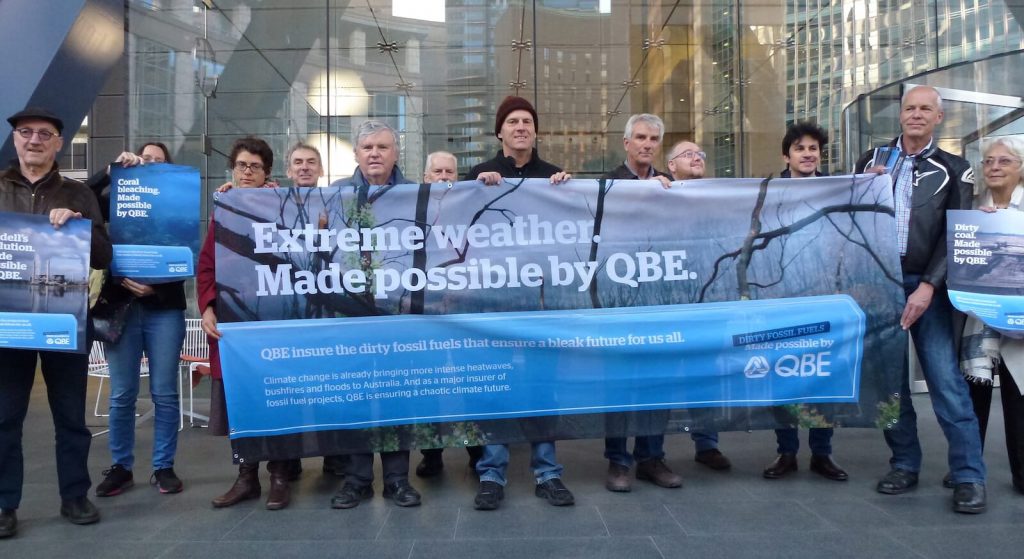
1 August 2019
The insurance sector globally is waking up to the fact that if it wants to avoid the growing impact on its profits caused by the climate crisis, it needs to stop providing insurance to and investing in the companies that are fuelling it.
At least 16 major global insurers have now committed to restricting their insuring of coal in some way, and over 20 are dumping some or all of their thermal coal company shares.
After being asleep at the wheel for years, Australia’s insurers have finally awoken and started to catch up to their global competitors. In recent months, QBE and Suncorp have both stopped providing insurance to new thermal coal projects; and the country’s third major insurer, IAG, has not been operating in that sector to begin with. This means that any new coal project in Australia will need to look to a rapidly shrinking number of overseas insurance companies for insurance.
Additionally, with Suncorp and QBE phasing out their entire exposure to thermal coal by 2025 and 2030 respectively, existing thermal coal mines or power stations intending to continue operating past 2030 will also need to look to a rapidly shrinking number of overseas companies for insurance.
This move is significant as all the major coal-burning power station owners, namely Origin Energy, AGL and EnergyAustralia, currently intend to keep some of their power stations open beyond 2030. Unlike the insurers, these power operators continue to ignore the urgent need to phase out coal burning in OECD countries by this date to have a chance of limiting global warming to 1.5 degrees.
The shift away from supporting thermal coal is welcome and the insurers’ accompanying stated support for climate action and the Paris Agreement a good step. However, dumping coal is only a first step. Without a similar commitment on oil and gas, QBE and Suncorp risk trading one massive climate risk for another over time.
Carbon emissions from oil and gas combined are greater than those from thermal coal. In the 2018 IPCC report on 1.5 degrees, model pathways with no or limited overshoot of 1.5°C of warming showed that global net anthropogenic CO2 emissions must decline by about 45% from 2010 levels by 2030, reaching net zero around 2050.
The use of oil for primary energy declines between 2020 and 2030 in all of the 85 pathways in the IPCC report for limiting warming to 1.5 degrees. The use of gas declines between 2020 and 2030 in all scenarios that do not assume “widespread deployment of CCS (carbon capture and storage)” – a technology that has failed to prove itself effective at scale.
This means that like with thermal coal, oil and gas production and burning cannot be allowed to expand.
Yet despite claiming to support the Paris Climate Agreement and climate action, Suncorp has no position on oil and gas. While Suncorp has told media that its underwriting and investment exposure to fossil fuels is currently relatively low, not having a clear policy on oil and gas expansions leaves it open to increase that exposure in the future.
QBE’s position on oil and gas is even worse. In its energy policy released in March 2019, QBE assumes an increase in oil and gas use, and names gas as a “transitional fuel”. Market Forces and others have asked repeatedly for the evidence and modelling that QBE bases these assumptions on, but QBE has refused to respond to these questions.
Acting on coal while remaining open to helping oil and gas expand is not consistent with keeping global warming to 1.5 degrees – in fact, it undermines global efforts to do so.
QBE and Suncorp need to both urgently update their energy policies to match their rhetoric by committing to immediately cease providing insurance to new oil and gas projects, and setting dates for the complete phase out of their oil and gas exposure.
Take action
Contact Suncorp and ask it to commit to phasing out all fossil fuels from its underwriting (insurance) and investment portfolios.
